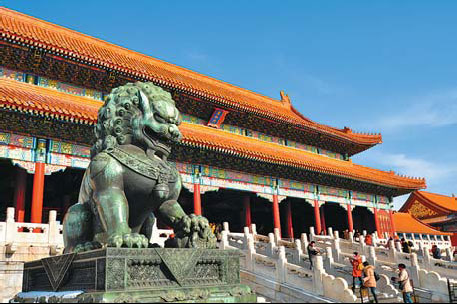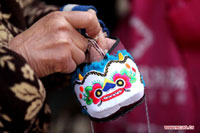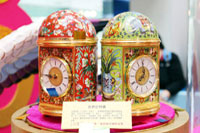
 |
|
Beijing Palace Museum (pictured) has strengthened its cooperation with Taipei Palace Museum over the past few years. Provided to China Daily |
This October, the Taipei Palace Museum will hold a large-scale exhibition themed Emperor Qianlong's Artistic Taste, which will focus on the emperor's life and how he nurtured his superb aesthetic values.
That's just one of the projects recently discussed by the Beijing Palace Museum director, Shan Jixiang, and his counterpart at the Taipei Palace Museum, Fung Ming-chu. The two met in Beijing this week to discuss extended cooperation over the next three years.
During this visit, Fung says, she and Shan have worked out a draft list of about 40 items that will be borrowed from the Beijing Palace Museum and exhibited in Taipei.
 |
Although the final number is yet to be determined, the loan objects will concentrate on three categories which are lacking in the Taipei museum's collection: Qianlong's portraits, large handmade clocks, and items related to people and events that had significant impact on the emperor.
The two museums are also collaborating on the 90th anniversary celebration of the Forbidden City's 1925 transformation into the Palace Museum in Beijing.
The Taipei Palace Museum will present a photography exhibition on the museum's portraits taken during the Qing Dynasty (1644-1911) to open the celebration.
Then the two museums will hold parallel exhibitions in Beijing and Taipei at the same time, both featuring the Ming Dynasty (1368-1644).
"Our exchanges have helped the two museums improve and make changes. It will also strengthen the sense of belonging of people on both sides toward Chinese culture," says Shan, director of the Beijing Palace Museum.
In 2009, the directors of the two museums exchanged visits for the first time. Since then, the two museums have reached nine agreements, laying a solid foundation for future cooperation.
The two museums co-curated the 2009 exhibition of Harmony and Integrity: The Yongzheng Emperor and His Times in Taipei, and the Beijing Palace Museum loaned 37 objects. More than 758,000 people in Taiwan saw the exhibition during the three-month show.
 |
In 2011, the two museums worked with the State Administration of Cultural Heritage to reunite the two parts of Yuan artist Huang Gongwang (1269-1354)'s masterpiece Dwelling in the Fuchun Mountains into one again in Taipei.
That followed another exhibition titled Emperor Kangxi and Sun King Louis XIV: Sino and Franco Encounters in Arts and Culture in Taipei, with 20 items loaned from Beijing Palace Museum.
"Our cooperation is far beyond just exhibitions," comments Fung, director of the Taipei Palace Museum.
Scholars and researchers from the two museums have interacted many times through exchanges and academic seminars. The museums have also donated books to each other's collections.
Cultural relics of the Taipei Palace Museum are still not allowed to come to the mainland, but Beijing's Shan hopes that will change as the museums expand their relationship.
Fung notes that the advancement of digital museum technology and the growing number of mainland tourists to Taiwan have already made the cultural heritages in the Taipei Palace Museum more accessible.